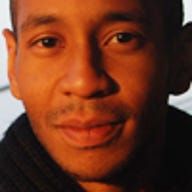TEACH South Africa aims to do just that

Podcast
 Last week, nearly 50 of South Africa's brightest young people marked an end to a two-year odyssey that found them teaching in some of the most challenging schools in the world. These teachers-graduates from many of South Africa's best universities-are the vanguard of a program that hopes to change education in South Africa, one of the most vexing problems in the country.
Last week, nearly 50 of South Africa's brightest young people marked an end to a two-year odyssey that found them teaching in some of the most challenging schools in the world. These teachers-graduates from many of South Africa's best universities-are the vanguard of a program that hopes to change education in South Africa, one of the most vexing problems in the country.
They were the first "graduates" of TEACH South Africa, a program that places newly minted graduates into troubled schools throughout the country.
These teachers, most in their early twenties, were born under apartheid, a system that intentionally handicapped schools in nonwhite areas, with a curriculum aimed at making servants not leaders. Almost two decades of democracy has seen little improvement in far too many these schools.
TEACH's goal is to go after young people who have graduated in one of the areas where these schools traditionally struggle.
In an interview with Voice of Wits, TEACH South Africa's co-founder Richard Masemola explained the type of person the organization was after:
[You] do have these young people, who are well sought after by corporates who are in the area of maths, science, English and IT, who would not ordinarily become teachers. And this is the group we want to reroute, or attract them to come into the teaching profession. (full interview mp3)
Teach South Africa is partially modeled on the Teach for America program that has put young, highly qualified graduates with little real-world teaching experience into classrooms for more than two decades.
South Africa is a country with as much promise as it has problems. The infrastructure of apartheid education is still used everywhere here, and classrooms within townships are regularly packed with as many as 60 students.
Half of students in South Africa make it to 12th grade. Those that do must prepare for the matric, a make or break exam that decides where young students will be able to study after they graduate, if they'll be able to study at all.
This month more than 620,000 students will take the matric. If current averages hold, just over two-thirds of them will pass.
Many teachers here are products of the apartheid-era "Bantu" education and are out of their depth in front of classrooms full of young students. Unqualified teachers saturate the system, yet one of the most powerful teachers unions in the world makes it difficult to fire any of them.
"We have the highest level of teacher unionization in the world, but their focus is on rights, not responsibilities," the former University of Cape Town Mamphela Ramphele said in a speech in 2009.
TEACH SA's hope is to infuse young talent into the system, possibly even changing the culture in a few schools at a time.
Luciel Steele is a recruiter's dream. With a degree in finance and economics from Wits University, Steele could have easily found a job in the financial sector. Instead, the young graduate joined TEACH in 2009 and found herself teaching middle school math in Katlehong, a black township 20 minutes outside of Johannesburg, in South Africa's industrial heartland.
"I've always had a passion for teaching" said Steele, who after graduation interned at a few financial institutions. The experience left her unfulfilled. She stumbled into a newspaper ad for TEACH, applied, was accepted and after an initial boot camp was teaching in Katlehong.
But Steele's two-year commitment has come to an end, and the its unclear whether there will be another TEACH SA "ambassador" to replace her.
The first class was made up of only 50 teachers (by comparison Teach for America sends out 8,200 teachers to 500,000 students). There are hopes to scale up the program, working with local businesses to pay the salaries of more incoming TEACH South Africa instructors. Yet the small numbers of teachers have had a huge impact on the students they teach, in one school raising pass rates in mathmatics from the single digits to near 80 percent.
The program is also gives these young teachers invaluable exposure to a world many South Africans never experience.
Morné Scholtz, a TEACH SA ambassador, taught math to high school students in Soshanguve, a township outside of Pretoria. He said the program has given him "the opportunity to interact with lots of people from different backgrounds."
Photo: Flickr/World Bank, H/T Celia Dugger, The New York Times
This post was originally published on Smartplanet.com